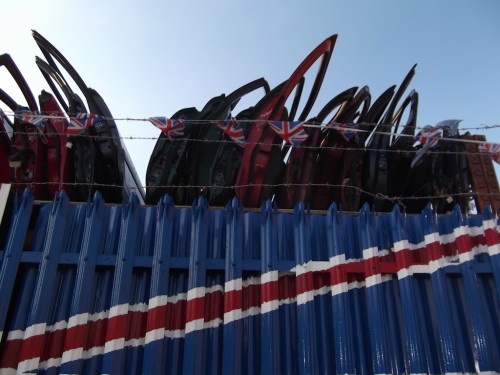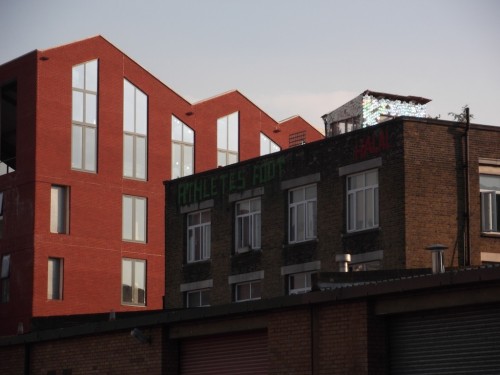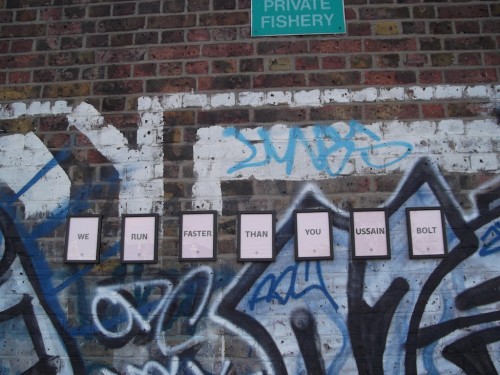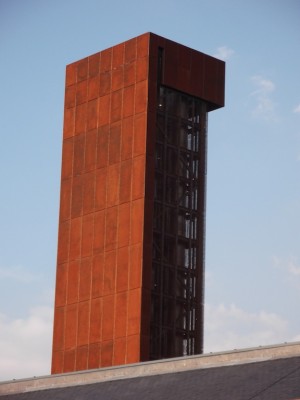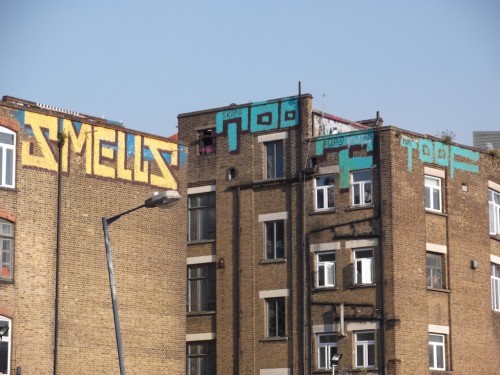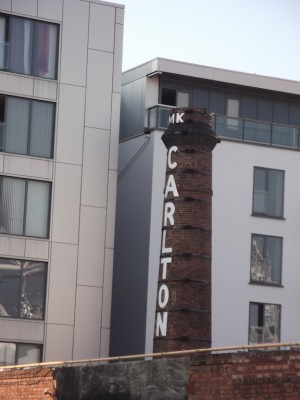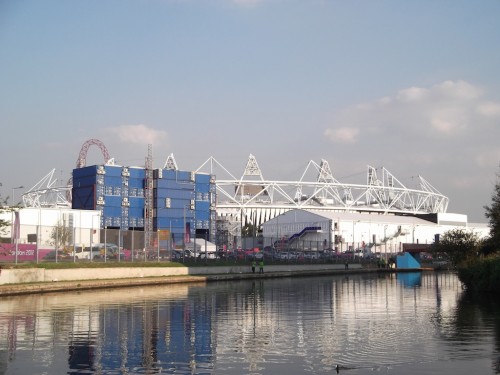EARLY EVENING ON A Friday, three days before the Olympics end. One of the only truly warm days of the summer. Two friends and I head east, towards the Olympic Park, but with one crucial difference: we’re on the wrong side of the tracks, or at least the River Lea, which, alongside the Thames, is the only river in London that remains above the ground. We’re aiming for something that sounds as if it might exist only in the pages of a Victorian novel: Fish Island.
Fish Island is in Poplar, in the borough of Tower Hamlets, one of the capital’s most cash-strapped areas. In the run-up to the Games, it became a target for the visionaries and the developers, who used phrases such as “mixed use eco-quarter” and “longterm regeneration potential.” Now, in between the scrapyards and patches of waste ground, rise newbuild apartment blocks and complexes of artists’ studios.
We met at Hackney Wick, itself a pleasanter experience than it used to be; a couple of years ago, before the new trains came, you trundled along at what felt like a snail’s pace, and disgorged, along the track that goes from Richmond in the west to Stratford in the east, at run-down stations. We three arrived from different points in the north and east of the city, having all got there in what felt an unfeasibly short time. We wandered away from the station, under a bridge, past Mr Bagels’ huge warehouse, and up White Post Lane; from there, right along the river and over a bridge to the island (not, incidentally, an actual island; one side of its triangular shape is a road, not water).
This is what we saw:
Cars: Just before we crossed the water, we came across this humorous little tribute to Team GB, a collection of car doors especially liveried in the national colours.
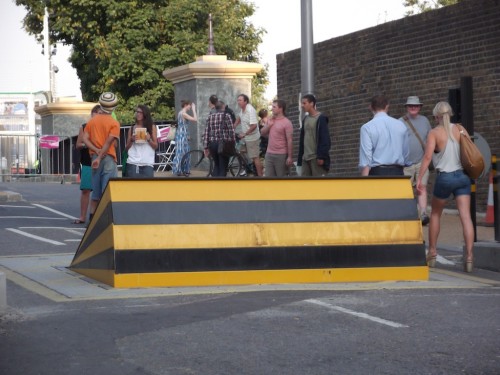
Run into this and much swearing ensues. Keeping London safe from terrorists. And traffic, and Alex Clark.
Barriers: Three or so years ago, driving to Stratford to go to the theatre, the satnav directed me up this road. Suddenly, I could go no further. It was my first tangle with Olympic-related roadworks. I seem to remember swearing a lot and getting lost.
“Athletes Foot,” a wag has written on the side of the building. Beneath a bridge, I also spotted a graffito that read “Imagine waking up one morning and all this shit was gone.” More ambiguous than it sounds, because it looked as though the words “this shit” had once read differently and been painted over.
Usain Bolt: “We run faster than you Ussain Bolt.” What does it mean? And why can’t they spell the name of the most famous athlete in the world?
The Tower: We saw this deep in to our walk, when we’d decided to look for a bar. It wasn’t hard. Everywhere along the river had transformed itself into a riverside hostelry, complete with big screens. Most, however, were half-empty, even on a midsummer Friday evening; bewildering, since the search for a seat in a pub, and especially outside a pub on a hot night, is one of the most aggressive quests most Londoners habitually embark on. We worked it out, we thought; the Olympic Park is so efficient at funnelling its visitors away from the sports arenas and back on to the trains that few are likely to go exploring the local area. One bar, though, had failed to cotton on, and garlanded its approach with red ropes and VIP signs. It would cost us, they said, £25 – or $40 – to get in, although we’d get a free drink. It didn’t sound very free. A few hundred yards away, we found a bar with a veranda right on the river. It was free to go in. We did.
Smells: The inhabitants of Fish Island specialise in mysterious graffiti, the creation of which requires a head for heights.
Smokestack: Among the industries that thrived on Fish Island during the Victorian and Edwardian era were rubber manufacturing, chocolate-making and the production of waterproof clothing. Also on the island was the factory that produced the highly popular Percy Dalton’s peanuts, now redeveloped into studios.
And, the Stadium: We drank our drinks this close to the stadium, as the American womens’ team smashed the decades-old East German record in the 4 x 100 meter relay while the British men were disqualified in the equivalent mens’ race. Trying to intuit who was winning which race from the timber and volume of the roar wasn’t quite the same as being there, but hey – when there’s only three days left, you’ll take what you can get.

